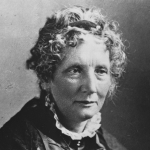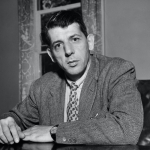Phoenix
“In Egyptian mythology, a bird
which lived for five hundred
years and then consumed itself
in fire, rising renewed from the ashes.”
—webster
The earth is a beautiful place.
Watermirrors and things to be reflected.
Goldenrod across the little lagoon.
The Black Philosopher says
“Our chains are in the keep of the Keeper
in a labeled cabinet
on the second shelf by the cookies,
sonatas, the arabesques. . . .
There’s a rattle, sometimes.
You do not hear it who mind only
cookies and crunch them.
You do not hear the remarkable music—‘A
If you could hear it
you would make music too.
The blackblues.”
West Madison Street.
In “Jessie’s Kitchen”
nobody’s eating Jessie’s Perfect food.
crazy flowers
cry up across the sky, spreading
and hissing This is
it.
The young men run.
They will not steal Bing Crosby but will steal
Melvin Van Peebles who made Lillie
a thing of Zampoughi a thing of red wiggles and trebles
(and I know there are twenty wire stalks sticking out of her
head
as her underfed haunches jerk jazz.)
A clean riot is not one in which little rioters
long-stomped, long-straddled, BEANLESS
but knowing no Why
go steal in hell
a radio, sit to hear James Brown
and Mingus, Young-Holt, Coleman, John on V.O.N.
and sun themselves in Sin.
However, what
is going on
is going on.
Fire.
That is their way of lighting candles in the darkness.
A White Philosopher said
‘It is better to light one candle than curse the darkness.’
These candles curse—
inverting the deeps of the darkness.
GUARD HERE, GUNS LOADED.
The young men run.
The children in ritual chatter
scatter upon
their Own and old geography.
The Law comes sirening across the town.
A woman is dead.
Motherwoman.
She lies among the boxes
(that held the haughty hats, the Polish sausages)
in newish, thorough, firm virginity
as rich as fudge is if you’ve had five pieces.
Not again shall she
partake of steak
on Christmas mornings, nor of nighttime
chicken and wine at Val Gray Ward’s
nor say
of Mr. Beetley, Exit Jones, Junk Smith
nor neat New-baby Williams (man-to-many)
“He treat me right.”
That was a gut gal.
“We’ll do an us!” yells Yancey, a twittering twelve.
“Instead of your deathintheafternoon,
kill ’em, bull!
kill ’em, bull!”
The Black Philosopher blares
“I tell you, exhaustive black integrity
would assure a blackless Amrica. . . .”
Nine die, Sun-Times will tell
and will tell too
in small black-bordered oblongs “Rumor? check it
at 744-4111.”
A poem to Peanut.
“Coooooool!” purrs Peanut. Peanut is
Richard—a Ranger and a gentleman.
A Signature. A Herald. And a Span.
This Peanut will not let his men explode.
And Rico will not.
Neither will Sengali.
Nor Bop nor Jeff, Geronimo nor Lover.
These merely peer and purr,
and pass the passion over.
The Disciples stir
and thousandfold confer
with ranging Rangermen;
mutual in their “Yeah!—
this AIN’T all upinheah!”
“But WHY do These People offend themselves?” say they
who say also “It’s time.
It’s time to help
These People.”
Lies are told and legends made.
Phoenix rises unafraid.
The Black Philosopher will remember:
“There they came to life and exulted,
the hurt mute.
Then is was over.
The dust, as they say, settled.”



















Comment form: